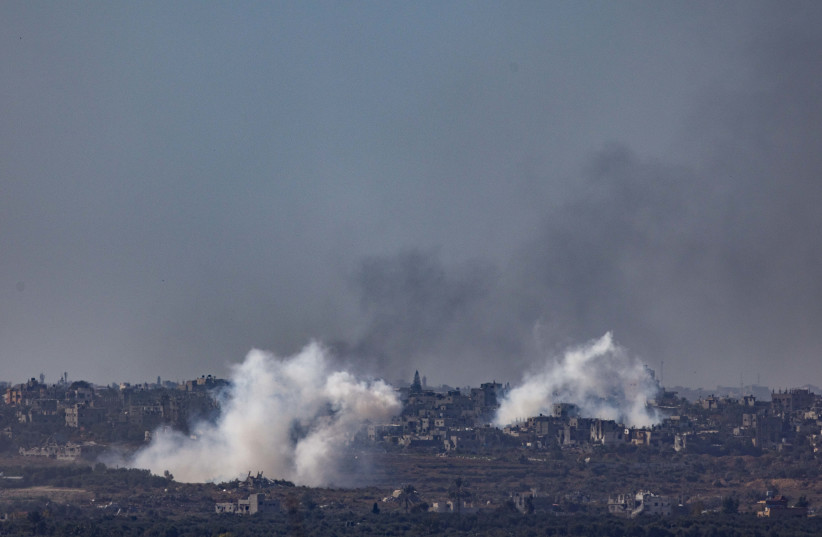In his epic work, War and Peace, the great Russian novelist Leo Tolstoy writes at length about the detailed battle plans of Napoleon’s 1812 invasion of Russia, as well as those of his Russian adversaries.
A military genius, Napoleon lays out greatly detailed and specific orders, choreographing the way he envisions a battle to be fought.
There are various theories of how to run a war, the rationales behind particular troop placements, strategies of attack, and the specific units that should be employed in a battle. Orders are detailed with precision and great thought.
Per Tolstoy, however, none of it really matters
At the end of the day, he asserts, battles are won by the spirit, desire, and willingness of the agglomeration of individual soldiers. Tolstoy is remarkably iconoclastic about debunking the conventional prioritization of top-down leadership in favor of an appreciation of the bottom-up role and importance of the soldiers who ultimately fight the battles.
Having recently read these searing observations, it occurs to me that there is in them a strong analogy to our increasing focus on the “day after” the war in Gaza.
Who will be the rulers of a post-war Gaza, assuming that Hamas is toppled from power? What continuing role will Israel play in Gaza?

And, of course, what will be the impact on Israeli society once the smoke clears, as it were, when tough questions are asked and painful realities confronted?
What Tolstoy might very well teach us is that we must ultimately look to the individual soldiers and their feelings, senses, and perceptions of how the war went.
I believe that these soldiers are the “800-pound gorilla” in assessing the “day after.” Just focusing on the 350,000 reservists, on their perceptions of how the war went, their sense of whether the mission was accomplished, and perhaps above all, their feeling of whether the sacrifice of their brothers was for a great result or, Heaven forbid, was in vain – will be of enormous weight in Israeli society.
The cumulative impact of the reservists – adding in their families and close friends – likely accounts for close to two million people, a very powerful cohort in our society.
These reservists, as well as the regular IDF soldiers, who have been serving under highly challenging conditions and circumstances, will have an overpowering, perhaps dominant voice in our society.
Their lives have been put on hold, families disrupted, friends killed and wounded, and businesses severely impacted; they will have experienced the entire gamut of challenge and dislocation.
They have fought and continue to fight with incredible patriotism, an overwhelming sense of mission, and a desire to protect their country from a threat that has been unmasked and whose true evil nature is now clear.
What will we have to show for all of that dislocation, all that pain, all that sacrifice? Will it have been worth it? What will we get in return? Will we have been allowed to do what we needed to do, and if not, why?
The gut reactions and questions that our returning soldiers will be asking will go to the heart of what it means to have a Jewish state that represents the fulfillment of the Zionist dream and the reality of a shining light in the midst of an unceasingly challenging neighborhood.
These questions will be aimed not just at our political leaders but at the institutions, organizations, and forces that attempted to shape the outcome of the mission.
Simply stated, it will be impossible to merely limit to the battlefield the fervor and the love of country and mission that has infused so many of our soldiers. They will hopefully bring that spirit back with them, to build on in their renewed daily lives.
But if that fervor is left to confront disappointment and a sense of a mission unfulfilled, or worse, aborted, that fervor will be unforgiving. Our leaders are well-advised not just to give lip service to the idea of victory but to take the mission as seriously as our soldiers. They will have to resist manifold pressures from the United States and Europe to explain the need for the willingness to press on and to create a secure and viable Gaza corridor and northern border.
Our leaders need to intuitively understand that while all of Israel received a profoundly hurtful but eye-opening wake-up call on October 7, it has been our soldiers who have been charged with implementing the understanding of that call.
Our soldiers will be the individual voices and the collective impetus for instilling a renewed awareness and spirit into our country.
The ripple effect is likely to be profound and pervasive.
Tolstoy saw that impact in European conflicts of 200 years ago. Today, the soldiers of the IDF are validating his observations: Our soldiers will hold the key to the future of our society.
Besides praying for their safety and success, we should be praying for the strengthening of their spirit – a spirit that promises to profoundly shape our society.
The writer is the chairman of the board of Im Tirtzu and a director of the Israel Independence Fund.
